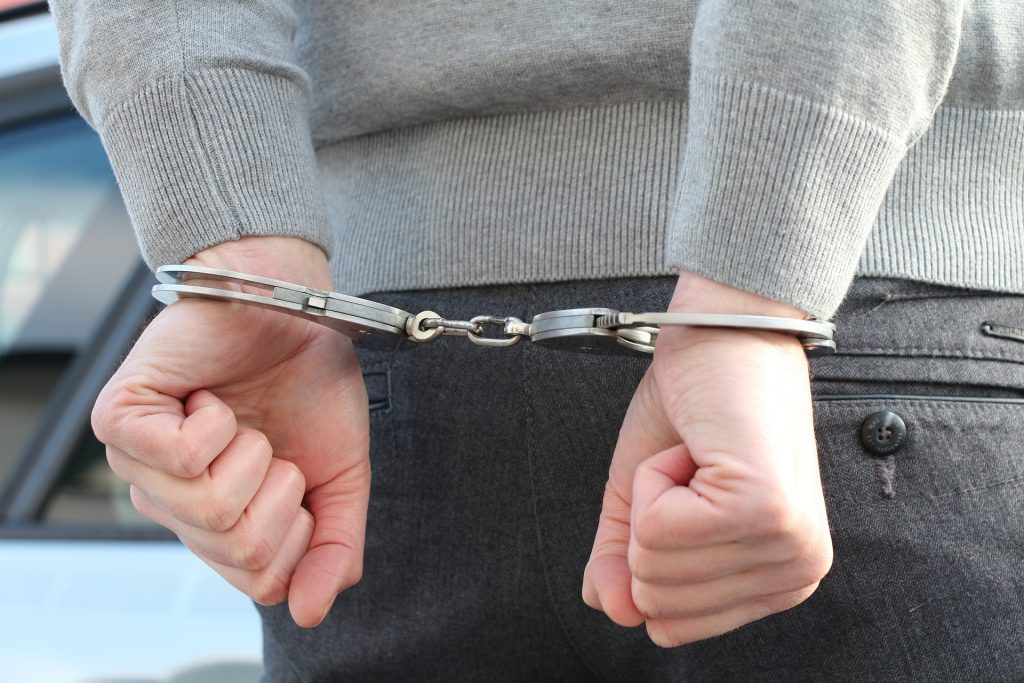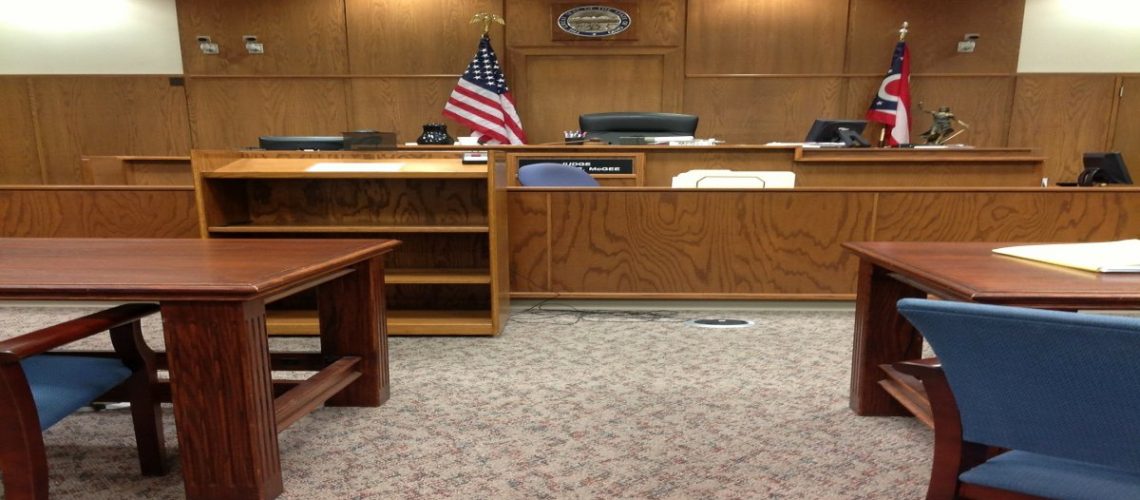They say the wheels of justice turn slowly. They may be right.
We have all heard of backlogged courts and cases that take too long to be determined with defendants waiting too long for their cases to be concluded.
After being charged with a crime, most people are unaware of what to expect. There are many questions in one’s mind, like and “how long will my trial take?” “when will I be convicted?”. So, let us break down the entire process, from arrest to conviction or acquittal.
1. Probable cause
Let us start at the beginning. The police need a good reason to arrest you for a crime, this is known as probable cause. Probable cause is a requirement in criminal law under the 4th amendment of the United States constitution.
Probable cause governs the requirements that must usually be met before police can conduct a search, make an arrest or receive a warrant. Under some circumstances, police can conduct a search or seizure without a warrant.
2. The arrest

Image Link
Once the police find evidence or have a reasonable basis to suspect you may have committed a crime, you will be arrested. The police will then file charges against you, take your prints and photo for the record.
You could also be questioned during this time, and although you may feel obligated to talk, it’s always best to remember your Miranda rights and wait until your lawyer arrives before you speak to the police.
3. Arraignment
Your first appearance in court during which you will be formally charged for the alleged crime is called an arraignment. It should occur as soon as possible after your arrest, preferably within 48 hours.
During an arraignment, the judge clarifies you are the individual accused of a crime and ensures you know the crime you are being charged with. It’s also the time you either plead not guilty or guilty.
You could also plead no contest or “nolo contendere,” which means you don’t admit guilt but will accept some punishment or a conviction for the crime.
Most defendants plead not guilty, and your lawyer may probably advise you to do the same. If you plead guilty, the trial will commence to sentencing right away.
You can expect the judge to set bail during the arraignment. Bail is money you give as security to the courts to ensure you attend your trial. Once bail is, you can go home and await the trial date to appear in court.
When can a judge deny bail?
Under certain circumstances, your request for bail may be denied. These include;
- Severe crimes – Those accused of rape, violent robbery or murder and other seriuos crimes may not be granted bail as they may be considered a danger to the general public.
- Flight risk – If a judge believes you will flee the country before your trial, they reserve the right to deny bail.
- Threat to the public – If you are accused of crimes that threaten the public, such as terrorism, you most likely will not be granted bail as you are deemed a threat to the populace.
- Repeat offenders – If you have previously been convicted of a similar crime, chances are that the judge will deny your request for bail.
4. Pre-trial process
During the pre-trial process, the prosecution and the defense discuss the case. The pre-trial process is a critical time, and the outcomes of the discussions during this time can impact your plea bargaining leverage.
If you’ve committed a misdemeanor, you can expect the prosecutor to file a charging document describing your crime to the state. If you are accused of a felony, the prosecutor will approach the grand jury to indict you before filing official criminal charges.
The prosecutor is expected to share any evidence he or she has against you with your lawyer during the pre-trial process. This is known as discovery. For example, if charged with murder, your lawyer will get copies of police reports or any physical evidence such as the murder weapon.
Many cases end at the pre-trial phase due to lawyers plea bargaining for their clients. However, if a plea agreement cannot be reached, your case will go to trial. Where a prosecutor forwards a case to the grand jury, it is hard to avoid an indictment.
5. Motion to suppress
Your defense lawyer may file a motion to suppress evidence to keep your case from going to trial. A motion to suppress evidence is a defense lawyer’s effort to prevent evidence that the police obtained illegally from getting to trial.
You can say the evidence is illegally obtained if the police violated your rights as a defendant to get it, for example, where you are forced by the police to confess to a crime.
6. The trial
A trial gives the judge and jury a chance to look at the evidence of the case and determine whether you are guilty.
If you are accused of a felony, the trial should begin within 6 months of your arrest, and last between 2 months and a year. Misdemeanor cases last for a shorter time. Usually, the length of a trial depends on its complexity.
7. Processes of a trial
Selection of the jury
A jury of 12 people is chosen for a criminal trial through a process known as voir dire.
Through the selection process, the defense and prosecution get a chance to weed out any compromised jurors. Both sides can remove a juror from a panel through a challenge for cause, and they get an unlimited number of chances to do it.
For example, where a prospective juror has a relationship with any of the witnesses involved in the case, they can be challenged by the defense.
Both sides also get a chance to make peremptory challenges where they can strike prospective jurors from the panel without reason. These challenges are limited, and the chances given vary depending on the type of trial. For example, in a misdemeanor trial, both sides only get three opportunities to make peremptory challenges.
Presentation of evidence

Image Link
After jury selection, the prosecutor can present their case by giving an opening statement and presenting evidence. For instance, a video of the crime may be aired in court.
Once the prosecutor is finished presenting their case, the defense lawyer can challenge the evidence.
A defense lawyer challenges the prosecutor’s evidence by cross-examining witnesses and providing evidence that proves the defendant’s innocence.
Final statements and verdict
Once the prosecutor and defense lawyer have pleaded their case, they sum up their arguments by giving a final statement.
After the final statements, the judge must prepare a jury charge to help the jury decide on a verdict.
The jury and judge then deliberate and give their verdict. Deliberation may take a short while or last for weeks as the judge and jurors look at the evidence and provide a verdict.
A guilty verdict can only be passed by a judge and jury if they think the defendant is guilty beyond a reasonable doubt.
A not guilty verdict means the defendant is cleared of the charges, and it cannot be overturned by the prosecution or the court.
Where a unanimous verdict cannot be reached, it is referred to as a “hung jury,” and the judge must declare a mistrial.
Apart from the lack of a clear guilty verdict, a court can also declare a mistrial if either the prosecutor or defense lawyer does not follow the rules of evidence.
After a mistrial, a prosecutor may try the case again, or the defendant’s charges will be dismissed.
8. Sentencing
In Texas, a judge decides the sentence. A defendant also has a right to ask the jury to determine his or her sentence.
Defendants receive punishment for their crimes at the sentencing stage. The judge determines how long the defendant will be sentenced to jail by looking at prior records.
Judges also follow preset guidelines of sentencing given by the federal and state government. They may also look at other factors, such as the defendant’s character.
9. The appeal
After sentencing, a defendant gets a chance to appeal the verdict at the appellate courts. These courts have the power to overturn a decision made by a lower court. If found guilty of a felony, you should appeal the ruling within 30 days of sentencing.
You can appeal a case at the Texas Court of Appeals, and if you feel their decision is not satisfactory, you can move on to the Texas Court of Criminal Appeals, which is the highest court in the state.
How long do criminal trials take?
Long trials are expensive for the state and for a defendant. They also clog the courts, denying swift justice to others. Therefore, judges try as much as possible to expedite criminal trials while following due process and giving the right judgments.
Generally, you can expect non-jury trials to take less time than jury trials. If you are charged with a homicide, you can expect your trial to last longer than say a theft case, mainly because the more serious the case, the more time it is likely to take in the courts. The length of criminal trials also varies from state to state.
According to these statistics, in 2019, out of 7553 criminal cases, 5470 took a day to deliberate. Only 139 of the criminal cases took over ten days to deliberate, with the remaining 1944 taking between 2 and 9 days.
You can see criminal trials can take a short time in court, and even a day is enough to deliberate them. However, it’s important to note that if a case is complicated, it may last for months or even years.
Last word!
Ideally, you are entitled to a speedy trial under the Sixth Amendment. However, because the outcome is not always guaranteed to work in your favor, you may choose to avoid trial altogether. Before you make a decision about your case, contact a Denton Texas criminal lawyer to help you make the right choice.

